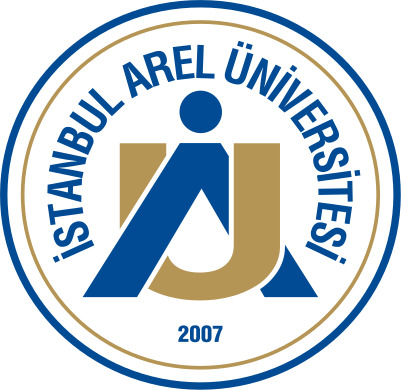Aircraft Technology
Overview
<!-- wp:paragraph --> <p><strong>Program Description</strong><br><strong>Aircraft Technology at Istanbul Arel University: Training the Aviation Engineers of the Future</strong></p> <!-- /wp:paragraph --> <!-- wp:paragraph --> <p>The Aircraft Technology program at Istanbul Arel University is a comprehensive, industry-focused course designed to equip students with the advanced technical knowledge and practical skills required to thrive in the rapidly evolving aviation industry. Combining engineering principles with hands-on training, the program prepares students to maintain, repair, and optimize aircraft systems, ensuring safety and efficiency in the aviation sector. With access to state-of-the-art facilities, cutting-edge technologies, and real-world industry exposure, students are ready to become leaders in aircraft maintenance, repair, and technological innovation.</p> <!-- /wp:paragraph --> <!-- wp:paragraph --> <p><strong>Program Mission and Vision</strong><br>The mission of the Aircraft Technology program at Istanbul Arel University is to develop highly skilled aviation professionals who are capable of managing and maintaining complex aircraft systems. The program focuses on fostering technical expertise, safety awareness, and problem-solving abilities. Its vision is to cultivate a new generation of aviation technicians who will contribute to the advancement of the aviation industry, ensuring safety, innovation, and sustainability in air travel and aircraft technology.</p> <!-- /wp:paragraph --> <!-- wp:paragraph --> <p><strong>Curriculum Structure</strong><br>The Aircraft Technology program offers a rigorous education that blends theoretical foundations with practical application in aircraft systems and maintenance. Key areas of the curriculum include:</p> <!-- /wp:paragraph --> <!-- wp:paragraph --> <p><strong>Introduction to Aircraft Systems and Operations</strong>: In the early years, students learn the basics of aircraft structure, aerodynamics, and flight principles, alongside an introduction to the various systems onboard aircraft. This includes studying propulsion systems, electrical and avionics systems, hydraulics, and environmental control systems.</p> <!-- /wp:paragraph --> <!-- wp:paragraph --> <p><strong>Aircraft Maintenance and Troubleshooting</strong>: Students are trained in the essential skills required for aircraft maintenance, including inspection procedures, preventive maintenance, and troubleshooting techniques. Courses cover mechanical, electrical, and avionics maintenance, preparing students to identify and resolve technical issues efficiently.</p> <!-- /wp:paragraph --> <!-- wp:paragraph --> <p><strong>Aerodynamics and Flight Mechanics</strong>: A deep understanding of how aircraft fly is essential for any aviation professional. Students gain knowledge of aerodynamics, flight dynamics, and aircraft performance, learning how to analyze flight data and optimize aircraft performance for safety and efficiency.</p> <!-- /wp:paragraph --> <!-- wp:paragraph --> <p><strong>Avionics and Electrical Systems</strong>: As aviation technology becomes more advanced, avionics and electrical systems play a key role. Students study avionics equipment, flight instrumentation, electrical power systems, and communications systems, learning how to ensure proper functioning and troubleshoot any malfunctions.</p> <!-- /wp:paragraph --> <!-- wp:paragraph --> <p><strong>Aircraft Materials and Structures</strong>: Courses in materials science focus on the construction and properties of aircraft materials such as composites, metals, and polymers. Students learn how to inspect, repair, and maintain aircraft structures, ensuring their integrity and safety.</p> <!-- /wp:paragraph --> <!-- wp:paragraph --> <p><strong>Aircraft Regulations and Safety Management</strong>: A strong focus is placed on aviation safety, regulatory compliance, and industry standards. Students learn about the regulatory frameworks governing aircraft maintenance, safety protocols, and emergency procedures, ensuring they meet the strict standards of the aviation industry.</p> <!-- /wp:paragraph --> <!-- wp:paragraph --> <p><strong>Emerging Technologies in Aviation</strong>: With the rapid development of new technologies in aviation, students are introduced to cutting-edge topics such as unmanned aerial systems (drones), electric aircraft, and sustainable aviation technologies. This allows students to explore the future of aviation and how emerging technologies are reshaping the industry.</p> <!-- /wp:paragraph --> <!-- wp:paragraph --> <p><strong>Capstone Project and Practical Training</strong>: The program culminates in a capstone project where students work on real-world aviation problems or engage in hands-on maintenance projects, simulating professional aviation environments. Students also participate in internships and industry placements, gaining valuable practical experience that enhances their technical and professional skills.</p> <!-- /wp:paragraph --> <!-- wp:paragraph --> <p><strong>State-of-the-Art Facilities and Labs</strong><br>Istanbul Arel University offers students access to modern aviation facilities, including fully equipped workshops, aircraft maintenance labs, and avionics simulation stations. These resources enable students to perform hands-on work with actual aircraft systems and components, preparing them for the operational demands of the aviation industry.</p> <!-- /wp:paragraph --> <!-- wp:paragraph --> <p><strong>Emphasis on Practical Experience and Industry Collaboration</strong><br>Aircraft technology is a highly practical field, and the program emphasizes hands-on learning and industry collaboration. Students engage in internships with airlines, maintenance organizations, and aerospace companies, where they gain real-world experience and develop the skills necessary to excel in their careers. The program’s partnerships with industry leaders ensure students receive valuable insights and training that align with current industry standards.</p> <!-- /wp:paragraph --> <!-- wp:paragraph --> <p><strong>Career Opportunities</strong><br>Graduates of Istanbul Arel University’s Aircraft Technology program are well-prepared to pursue exciting and rewarding careers in the aviation industry. Career opportunities include roles as aircraft maintenance technicians, avionics specialists, flight engineers, aerospace engineers, and aircraft service managers. Graduates can work for airlines, maintenance repair organizations (MROs), aviation manufacturing companies, or even pursue entrepreneurial ventures in aviation services.</p> <!-- /wp:paragraph --> <!-- wp:paragraph --> <p><strong>Advancing the Future of Aviation</strong><br>Istanbul Arel University’s Aircraft Technology program prepares students to be at the forefront of the aviation industry, with the technical expertise and practical skills needed to maintain and innovate aircraft systems. The program’s strong emphasis on safety, technology, and hands-on learning ensures that graduates are ready to meet the challenges of the modern aviation industry and contribute to its future growth and development. Students graduate as skilled technicians and engineers, equipped to shape the future of air travel and aircraft technology.</p> <!-- /wp:paragraph -->
Program Description
The Aircraft Technology program at İstanbul Arel University offers a comprehensive curriculum designed to prepare students for successful careers in this dynamic field. The program combines theoretical knowledge with practical skills, ensuring graduates are ready for the challenges of the industry.
The program is taught by experienced faculty members who are leaders in their respective fields, providing students with insights into current industry practices and future trends.
Curriculum Highlights
- Advanced Research Methods: Learn cutting-edge research techniques and methodologies.
- Industry Analysis: Explore current industry trends and develop analytical skills.
- Leadership and Management: Develop essential leadership skills for managing teams and projects.
- Innovation and Entrepreneurship: Cultivate creative thinking and entrepreneurial mindset.
- Digital Transformation: Understand how technology is reshaping industries and businesses.
- Sustainable Development: Explore environmentally sustainable practices and their implementation.
- Global Markets: Study international market dynamics and global business operations.
- Technology Integration: Learn to leverage technology for improved business outcomes.
Requirements:
- Bachelor's degree (for Master's programs) or equivalent qualifications.
- Proven English language proficiency (IELTS 6.5+ or equivalent).
- Complete transcripts from previous education.
- A compelling letter of motivation explaining your interest in the program.
- Two letters of recommendation from academic or professional references.
- Valid passport with appropriate visa status or eligibility.
Benefits:
- World-class faculty with extensive industry experience.
- Modern campus facilities and cutting-edge learning environments.
- Strong industry partnerships providing networking opportunities.
- Internship opportunities with leading companies in the field.
- Comprehensive career services including job placement assistance.
- Access to a global alumni network for lifelong professional connections.
Begin your educational journey today.
Apply now and take the first step towards your future.






